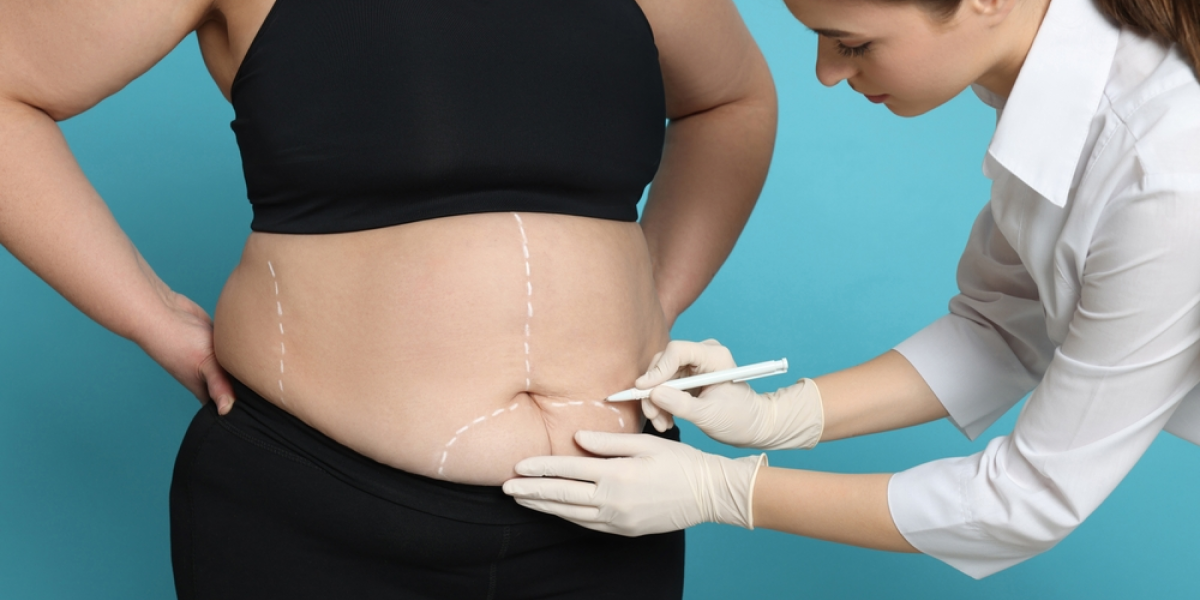If you struggle with extreme obesity and have not lost a considerable amount of weight with diet, exercise, or medication, bariatric surgery can change your life. This procedure is a potent tool that can enhance general health and lower the risk of obesity-related diseases like type 2 diabetes, heart disease, and some malignancies. It is not just about decreasing weight. This extensive guide will discuss bariatric surgery, its techniques, pros and cons, and what to expect before and after the procedure.
The term’ bariatric surgery’ encompasses a range of surgical techniques designed to aid patients in their weight loss journey by altering their digestive systems. These techniques aim to restrict food intake, limit nutrient absorption, or combine both, leading to significant weight loss. Bariatric surgery is often recommended for patients with a body mass index (BMI) of 40 or higher or those with a BMI of 35 or higher who have serious health issues related to obesity.
Here are seven crucial food guidelines after the procedure to help you get the most out of your bariatric surgery.
1. Follow a Gradual Diet Progression

Following bariatric surgery, your stomach needs healing time. For this reason, it’s critical to adhere to the organized diet progression that your doctor has prescribed. This usually entails moving through multiple phases:
- Liquid Diet: Following surgery, you will follow a clear liquid diet for the first few days. This allows your stomach to heal without the stress of solid food.
- Pureed Foods: Pureed foods are the next step after the liquid phase. They are nutrient-dense, soft, easily digested, and light on your stomach.
- Soft Foods: You’ll start eating soft foods, which are easier to digest but more substantial than pureed foods, while your stomach heals.
- Solid Foods: You will eventually add solid foods back into your diet. It’s crucial to go cautiously so your stomach has time to adjust.
Always adhere to your medical staff’s instructions to ensure you develop safely and healthily.
2. Eat Small, Frequent Meals

Your stomach’s capacity is drastically decreased following bariatric surgery, so you can’t consume as much as you once could. Small, frequent meals are the key to ensuring you obtain the nutrition your body needs without feeling bloated throughout the day. Try to have five or six smaller meals daily rather than three large ones.
Tips for Eating Small, Frequent Meals:
- Reduce the Size of Your Plates and Utensils: This can help you eat less and manage portion proportions.
- Pay attention to your body’s signals of hunger and fullness, and stop eating when you’re satisfied but not too full.
- Chew Carefully: Give each bite careful chewing to facilitate better digestion and help you feel satisfied after consuming less food.
- Organize Your Meals: Preparing meals and snacks ahead of time can help you maintain smaller quantities and avoid harmful options.
- Avoid Having Alcohol with Meals: It’s recommended to wait 30 minutes before or after eating to hydrate because drinking fluids during meals can cause you to feel full too quickly.
Eating small, frequent meals can help you control your appetite, maintain consistent energy levels, and support your weight loss objectives following surgery.
3. Prioritize Protein

Protein is crucial following bariatric surgery because it retains muscle mass during weight loss, aids in the body’s healing process, and prolongs feelings of fullness. Prioritizing protein in every meal and snack following surgery is vital because your needs will increase.
Protein-Rich Food Options:
- Lean meats like fish, turkey, and chicken.
- Dairy items with low-fat content, such as Greek yogurt and cottage cheese.
- Whites and eggs.
- Plant-based proteins are found in legumes, tofu, and tempeh.
- Protein drinks or supplements based on your doctor’s advice.
Try to get between 60 and 80 grams of protein daily, but pay attention to the precise amounts your surgeon or nutritionist advises.
4. Stay Hydrated, But Sip Slowly

Maintaining proper hydration is essential after bariatric surgery, but it calls for a different strategy because of your smaller stomach. Consuming a lot of liquids at once can upset your stomach and make it uncomfortable. Instead, concentrate on taking small, regular sips of fluids throughout the day.
Tips for Staying Hydrated After Bariatric Surgery:
- 64 Ounces a Day: Make an effort to drink 64 ounces or more of fluids daily. Water, herbal teas, and other sugar-free drinks might be examples.
- Sip, Don’t Gulp: Avoid consuming big amounts of alcohol at once by taking tiny sips throughout the day. This reduces the chances of nausea and pain.
- Avoid Having Alcohol with Meals: Avoid drinking anything after or before meals for at least thirty minutes. This keeps your stomach from getting overly full and guarantees you may consume enough food to satisfy your dietary requirements.
- Select Hydrating Drinks Carefully: Stay with water, herbal teas, and other non-carbonated, sugar- and caffeine-free beverages. Avoid carbonated drinks, as they may induce gas and bloating.
- Bring a Bottle of Water: Carrying a water bottle with you will help you remember to take regular sips and maintain your hydration levels throughout the day.
Staying adequately hydrated promotes healing, enhances bodily performance, and helps you lose weight. Remember that the secret to staying hydrated without packing on the pounds is to sip regularly and carefully.
5. Avoid High-Sugar and High-Fat Foods

Your body’s capacity to metabolize food changes following bariatric surgery, so avoiding foods high in fat and sugar is critical. In addition to impeding your weight reduction efforts, certain foods may have unpleasant side effects, such as dumping syndrome, in which food passes from your stomach into your small intestine too quickly, resulting in nausea, vomiting, dizziness, and diarrhea.
Why Avoid High-Sugar and High-Fat Foods?
- Avoid Dumping Syndrome: Foods that are too sugary or fatty might cause dumping syndrome, which can be uncomfortable and even dangerous.
- Encourage Weight Loss: Foods heavy in fat and sugar have few nutrients and plenty of calories, which can impede weight loss and cause nutritional deficits.
- Encourage Healthy Eating Habits: Refusing these foods will help you maintain weight reduction and general health by encouraging a healthier, more balanced diet.
Foods to Avoid:
- Avoid sugary snacks and desserts such as candy, cakes, cookies, pastries, and other sweets.
- Fried Foods: Deep-fried foods such as French fries and fried chicken are heavy in bad fats and should be consumed in moderation.
- Sugary Drinks: Sugar-filled fruit juices, energy drinks, sodas, and coffee drinks with additional sugar can all rapidly result in consuming too many calories.
- Processed Foods: Many processed foods contain unhealthful fats and hidden sugars. Carefully read labels to avoid these.
Healthier Alternatives:
- Select Fresh Fruits: Fresh fruits are a better option than sugary snacks, which are naturally sweet and high in vitamins and fiber.
- Select Baked or Grilled: To reduce fat intake, go for baked, steamed, or grilled dishes instead of fried ones.
- Sip herbal teas or water: Water, herbal teas, or other non-sugary, caffeine-free liquids should be used instead of sugary drinks.
- Examine the labels: Develop your ability to read labels carefully to spot hidden sugars and bad fats in packaged foods.
Eating low-fat and high-sugar diets will not help you sustain the long-term advantages of bariatric surgery. Choosing healthier options may encourage general well-being, avoid issues, and help your weight loss journey.
6. Take Vitamin and Mineral Supplements

Taking vitamin and mineral supplements following bariatric surgery is crucial because the procedure significantly alters your body’s ability to absorb nutrients. By ensuring that you get the nutrients your body needs to stay healthy and support your weight reduction journey, these supplements help prevent deficiencies that can result in significant health issues.
Why Are Supplements Necessary?
- Reduced Absorption: Bariatric surgery frequently modifies the digestive tract, omitting portions of the small intestine and shrinking the size of the stomach. This restricts the amount of vitamins and minerals your body can absorb through diet alone.
- Prevent Deficiencies: If you don’t take enough supplements, you could become deficient in essential nutrients like calcium, iron, vitamin B12, and vitamin D. These deficiencies can cause problems including osteoporosis, anemia, and nerve damage.
- Support General Health: As your body adjusts to new dietary requirements, supplements help maintain energy levels, immune system functioning, bones, and general well-being.
Joint Supplements Needed After Bariatric Surgery:
- Multivitamins: A daily multivitamin is necessary to cover a broad spectrum of nutrients. If your doctor suggests one, get one designed specifically for bariatric patients.
- Calcium: The health of your bones depends on calcium. Most people require 1,200–1,500 mg of calcium citrate daily doses.
- Vitamin D promotes immunological function and helps the body absorb calcium. Your healthcare practitioner may suggest a different dosage.
- Vitamin B12: After surgery, your body can find it difficult to absorb B12 from food. As a result, you’ll need to take a B12 supplement orally, sublingually, or intravenously.
- Iron: Women who are prone to anemia and those who are menstruating should pay special attention to iron supplements. It is frequently advised to take iron and calcium apart to improve absorption.
- Additional Nutrients: Your doctor may suggest extra vitamins like zinc, vitamin A, or folic acid based on your particular operation and medical requirements.
Tips for Taking Supplements:
- Observe Your Provider’s Recommendations: It’s essential to heed the advice given by your healthcare team. Depending on the sort of operation you had and your specific medical needs, different supplements may have different dosages and types.
- Consume Supplements Regularly: Establish a daily supplement routine to prevent deficiencies.
- Track Your Levels: It’s critical to get routine blood work done to monitor your nutritional levels and make necessary supplement adjustments.
Following bariatric surgery, taking the proper vitamin and mineral supplements is critical to ensure your long-term success and health. These supplements fill in the nutritional gaps caused by your decreased food intake and changed digestion. As you continue your weight loss journey, you can prevent deficiencies and support your general well-being by taking supplements regularly and according to your healthcare provider’s recommendations.
7. Practice Mindful Eating

After bariatric surgery, mindful eating can help promote healthy eating habits, prevent overindulgence, and improve one’s relationship with food. It entails paying close attention to what, when, and how much one eats, being utterly present throughout meals, and sensing one’s body’s hunger and fullness signals.
Why Mindful Eating Matters:
- Prevent Overeating: Given your smaller stomach size, it’s especially crucial to finish eating when you’re full rather than stuffed by eating gently and paying attention to your body’s cues.
- Improved Digestion: Eating slowly and with full chewing reduces the likelihood of discomfort or difficulties by allowing your digestive system to handle food more efficiently.
- Increased Satisfaction: Even with lower servings, mindful eating makes meals more gratifying because it enables you to completely appreciate the flavor, texture, and aroma of your food.
- Encourage Healthy Choices: Mindfulness enables you to choose nourishing foods that will assist your weight loss and overall health.
Tips for Practicing Mindful Eating:
- Eat Distraction-Free: Put your phone away, turn off the television, and concentrate only on your food. This enables you to genuinely appreciate your food by tuning in to your body’s cues.
- Carefully: Chew wholly and slowly, taking your time with each bite. This facilitates digestion and makes you feel satisfied after eating less food.
- Recognize Your Hunger Cues: Before you eat, consider whether you’re genuinely hungry or just doing it out of habit, stress, or boredom. Consume food only when you’re starving and quit when you’re full.
- Savor Your Food: Pay careful attention to your meal’s tastes, textures, and scents. Eating slowly can help you appreciate these features and enjoy your food more.
- Portion Control: To avoid overeating, serve yourself smaller quantities. To help with this, use smaller plates and utensils.
- Pause During Meals: Throughout your meal, take little pauses to gauge your hunger and fullness levels. By pausing, you can avoid overindulging in food and eating too quickly.
Benefits of Mindful Eating After Bariatric Surgery:
- Supports Weight Loss: Mindful eating helps you keep the weight off after surgery by encouraging healthier eating choices and avoiding overindulging.
- Mindful Eating Diminishes Stress Associated with Eating: Mindful eating helps minimize stress and anxiety around food by adopting a peaceful and optimistic attitude throughout meals.
- Promotes Long-Term Success: Creating conscious eating practices can help you keep a healthy weight and live a long, sustainable life.
Careful eating is crucial for long-term success following bariatric surgery. By being present during meals, listening to your body’s cues, and choosing healthier options, you may improve your digestion, prevent overeating, and have a more fulfilling connection with food. These behaviors will also help you lose weight and improve your general well-being.
Conclusion
Adhering to these seven food recommendations is critical to your long-term success and recuperation after bariatric surgery. By making educated food choices, drinking plenty of water, taking supplements, and engaging in mindful eating, you can attain and sustain your weight loss objectives while enhancing your general health. Always collaborate closely with your medical team to ensure you’re on the correct path and making the best choices for your health.

